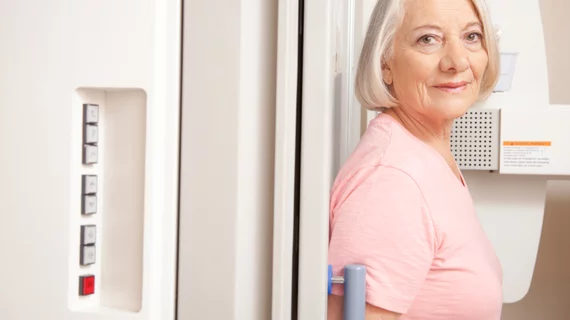FDA nods to breast cancer AI, knee replacement 3D
A medical AI startup focused on breast cancer diagnostics has uncloaked from stealth mode, appointing an MD as CEO and concertedly promoting its initial software offering seven months after the FDA approved the product.
Santa Clara-based Whiterabbit announced its growth spurt May 11, saying the recently cleared AI product, called WRDensity, was trained on tissue-density data acquired in breast screening exams over decades. The tool helps radiologists quickly determine such density, high levels of which can obscure breast cancers and thus comprise a key risk factor.
The 4-year-old company’s incoming CEO, Alexander Sardiña, MD, was previously CMO for Solis Mammography.
Whiterabbit’s announcement also touts the company’s AI-enhanced version of ACT software for scheduling and other aspects of customer-relations management. The announcement quotes the CEO of the outpatient imaging giant RadNet, an existing Whiterabbit client.
“Compliance, or getting every woman in the door for her annual mammogram, is vital for early breast cancer detection,” says the CEO, Howard Berger, MD.
Elsewhere in the emerging tech arena, Massachusetts-based Conformis has won 501(k) clearance from FDA for its Identity Imprint knee-replacement aid. The company says the product uses a “best fit” algorithm to help orthopedic surgeons personalize selection of an artificial knee based on a 3D rendering of the patient’s CT scans.
Conformis says Identity Imprint will be distributed during installations of the company’s sterile “surgery-in-a-box” system, which “is expected to provide ambulatory surgical centers greater procedural efficiency and improved sterilization cost savings than standard systems.”

